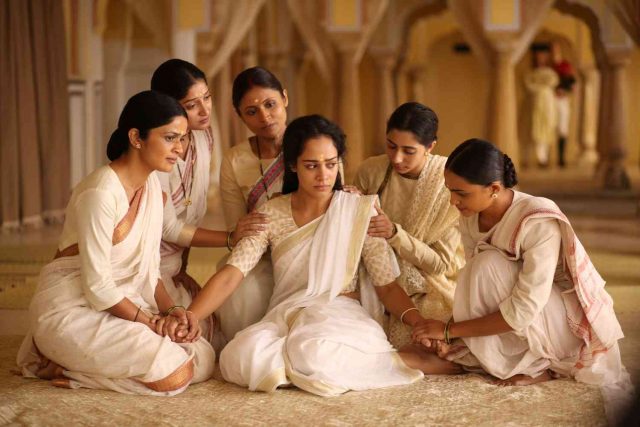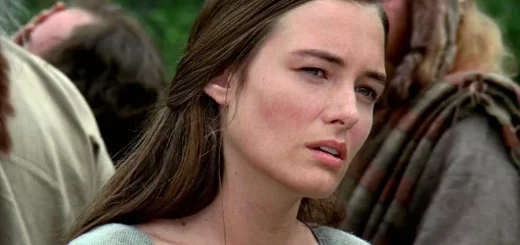The Warrior Queen of Jhansi: Blase-Heart, by David Bax

With the exception of veteran scenery chewers Rupert Everett (as British Army officer Sir Hugh Rose) and Derek Jacobi (as Prime Minister Henry John Temple, also known as Lord Palmerston), the performances in Swati Bhise’s The Warrior Queen of Jhansi are uniformly superficial and undymanic. Perhaps the cast were following the lead of the film’s screenwriter and star, Devika Bhise (the director’s daughter). For understandable reasons, this seems to be something of a passion project for the younger Bhise. But any passion to be found is not for good filmmaking.
Bhise plays Rani Lakshmibai, the Rani of Jhansi, a real-life historical figure who led a rebellion in 1857 India against the British East India Company that eventually led to the end of the company’s century long stranglehold on the subcontinent. As the Company up their ruthlessness against the Rani, Queen Victoria (Jodhi May) becomes more concerned about their outsize influence and the way it reflects on England.
Any story about a 24-year-old female general leading forces against a massive occupying army ought to be undeniably stirring. But the Bhises are doggedly committed to making The Warrior Queen of Jhansi as dry an account of historical facts as possible. Taken as a whole, the movie feels like nothing more than a supercut of cheesy reenactments from a History Channel documentary.
If this were a documentary, though, we’d at least have talking heads to guide us through the story. Absent that, Devika Bhise has stuffed her screenplay with info-dump dialogue. Characters might as well be saying things like, “Hey did you hear about all this backstory?” or “We’re the bad guys!” or “This is a cholera epidemic!” One actual line of dialogue, when the Rani’s troops are defending the outer palace walls is, “Don’t let them reach the top!” Rani Lakshmibai was reportedly a renowned military strategist; I have to imagine her plans were more detailed than that.
It’s especially frustrating that that’s the only real battle scene. The Warrior Queen of Jhansi’s budget concerns can’t be helped but it’s nearly comical when we hear tell of her great offscreen military victories and never see them.
It’s not difficult, on its face, to understand why the Bhises wanted to make a movie about Rani Lakshmibai. Hers is not only a rousing and inspiring tale, she’s also an undeniably important and undersung historical figure. But the experience of watching The Warrior Queen of Jhansi is like someone else telling you what happened in Braveheart.




























